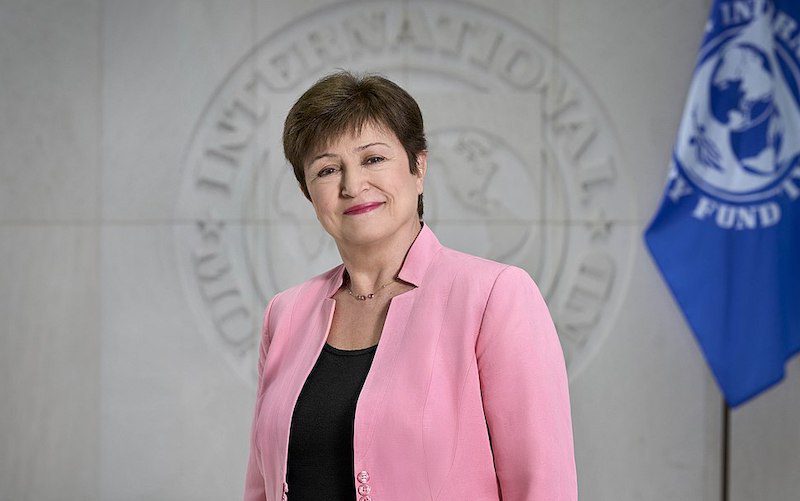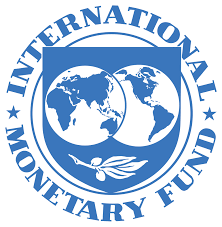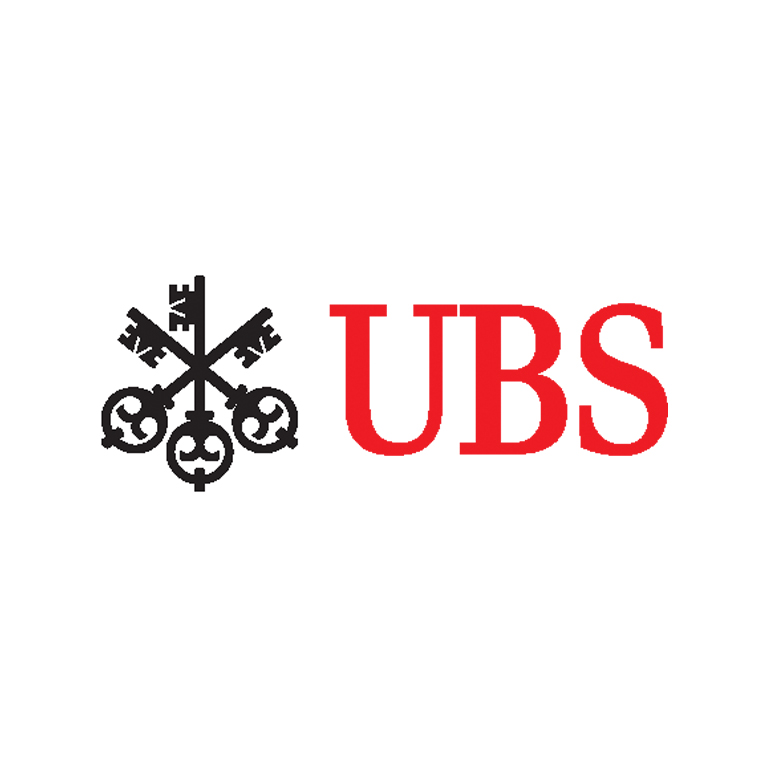Will we have a recession in 2022/2023? Portfolio actions? Expected returns?
A survey with leading investment managers, advisors, professional investors & family offices.
147
Respondents from 27 Countries
19%
Manage $100 million to $1 billion
12%
Manage more than $1 billion
51%
Manage $3 million to $100 million

” 83.66% view that we are already in a recession or will have a recession “
” 78.23% have taken actions, preparing, getting cautious, or ready for investment opportunities. “
” 67.2% are expecting positive returns ranging from 1% to more than 50% of portfolio gains “
-
The 2022 Recession Survey
The 2022 Recession Survey
Caproasia Institute conducted a survey on recession with leading investment managers, advisors, professional investors & family offices. A total of 147 respondents worldwide participated in the survey over 3 weeks (4th Oct to 26th Oct 2022). The 2022 Recession Survey asked respondents on their view of a recession in 2022/2023 and if they have de-risk their investments &/or prepared for investment opportunities. Respondents also provided their expected returns on their assets, investments & portfolio over the next 1 year or till the end of 2023. The 147 respondents comes from 27 countries. 71.4% are from APAC, 16.3% from Europe, 2.7% from Middle-East (Dubai) and 9.5% from Americas. 53% of the respondents are from Singapore (34%) & Hong Kong (19%).
51.02% of respondents manage $3 million to $100 million, 19.04% manage $100 million to $1 billion, 11.56% manage $1 billion to $100 billion, 1.36% manage more than $100 billion, 16.33% of respondents indirectly manage assets or advise clients, 0.68% (1 respondent, family office) decline to disclose portfolio size.
The Survey:
- Views of a recession in 2022/2023
- If they have de-risk their investments &/or prepared for investment opportunities
- Expected returns over the next 1 year or till the end of 2023
-
Portfolio Size
Portfolio Size / AUM:
- 51.02% of respondents manage $3 million to $100 million
- 19.04% manage $100 million to $1 billion
- 11.56% manage $1 billion to $100 billion
- 1.36% manage more than $100 billion
- 16.33% of respondents indirectly manage assets or advise clients
- 0.68% (1 respondent, family office) decline to disclose portfolio size
Portfolio Size / AUM: Breakdown
- $3 million to $20 million – 37.41%
- $20 million to $100 million – 13.61%
- $100 million to $300 million – 9.52%
- $300 million to $1 billion – 9.52%
- $1 billion to $10 billion – 6.80%
- $10 billion to $30 billion – 3.40%
- $30 billion to $100 billion – 1.36%
- More than $100 billion – 1.36%
- Indirectly managing / advising – 16.33%
- Undisclosed – 0.68% (1 respondent, family office) decline to disclose portfolio size
-
The Respondents
The Respondents
The 147 respondents come from 27 countries. 71.4% are from APAC, 16.3% from Europe, 2.7% from Middle-East (Dubai) and 9.5% from Americas. 53% of the respondents are from Singapore (34%) & Hong Kong (19%).
- 71.4% are from Asia-Pacific
- 16.3% from Europe
- 2.7% from Middle-East (Dubai)
- 9.5% from Americas.
27 Countries:
- Asia-Pacific – Singapore, Hong Kong, India, Malaysia, Thailand, Vietnam, Indonesia, Taiwan, Philippines, Australia, New Zealand
- Europe – United Kingdom, Switzerland, France, Spain, Russia, Netherlands, Belgium, Germany, Czech Republic, Morocco, Turkey
- Middle East – Dubai
- Americas – United States, Canada, Argentina, Venezuela
-
Key Findings
The 2022 Recession Survey
Caproasia Institute conducted a survey on recession with leading investment managers, advisors, professional investors & family offices. A total of 147 respondents worldwide participated in the survey over 3 weeks (4th Oct to 26th Oct 2022). The Survey:
1. Views of a recession in 2022/2023
2. If they have de-risk their investments &/or prepared for investment opportunities
3. Expected returns over the next 1 year or till the end of 2023Key Findings
- We have a Recession – 83.66% view that we are already in a recession or will have a recession.
- Already in a Recession – 29.25% view that we are already in a recession, data in next few months will show, due to data lag.
- 6 months to 1 year Recession – 31.97% view that we will have a short & mild recession, that will last around 6 months to 1 year
- On Investment – 78.23% have taken actions, preparing, getting cautious, or ready for investment opportunities.
- On Expected Returns – 67.2% are expecting positive returns ranging from 1% to more than 50% of portfolio gains
Larger Portfolio Insights (More than $1 billion):
- No Recession – Slightly more larger portfolio investors view that we will not have a recession (21% vs 9.52% overall)
- Committed Position Actions on Recession – Larger portfolio (> $1 billion) have taken a slightly more committed stance on recession (Yes, No), and thus larger portfolio have taken more portfolio actions to either increase investments, or decrease investments.
- Getting Cautious – None of larger portfolio responded with “Getting Cautious” compared to 147 respondents of 14.29%
- Higher Returns & Larger Losses – Larger portfolio expect higher returns, and larger losses compared to all 147 respondents. Notably, 0% expect minimal change to portfolio, compared to 8.16% of overall 147 respondents
Larger Portfolio:
- 19 of 147 respondents manage more than $1 billion
- 11.56% manage $1 billion to $100 billion
- 1.36% manage more than $100 billion
-
Key Summary
The 2022 Recession Survey Summary
1) On a Recession in 2022/2023
- 83.66% view that we are already in a recession or will have a recession.
- 29.25% view that we are already in a recession, and data in next few months will show, due to data lag.
- 31.97% view that we will have a short & mild recession, that will last around 6 months to 1 year
- 12.24% view that we will have a mid-to-long term recession, lasting 1 to 5 years
- 10.20% view that something will trigger a major crisis that will cause a severe recession (Eg. 2008 Subprime, 1997 Asian Currency Crisis)
Larger Portfolio Insights (More than $1 billion):
Overall, versus small portfolio, slightly more larger portfolio investors view that we will not have a recession (21% vs 9.52%).
2) De-risk investments, &/or ready for investment opportunities?
- 78.23% of respondents have taken actions, preparing, getting cautious, or ready for investment opportunities.
- Only 21.77% of respondents have not, are not, or will not take any actions.
Larger Portfolio Insights (More than $1 billion):
Overall, larger portfolio have taken a slightly more committed stance on recession (Yes, No), and thus larger portfolio have taken more portfolio actions to either increase investments, or decrease investments. Also, 0% (None) of the larger portfolio responded with “Getting Cautious” compared to overall 147 respondents of 14.29%.
3) Expected Returns on Investments (1 Year, End 2023)
- 67.2% of respondents are expecting positive returns ranging from 1% to more than 50% of portfolio gains
- 21% expect positive returns of 20% or more of portfolio gains
- 24.2% expect negative returns (losses) ranging from -1% to more than 50% of portfolio losses
Larger Portfolio Insights (More than $1 billion):
Overall, larger portfolio expect higher returns, and larger losses compared to all 147 respondents, with 0% expecting minimal change to portfolio, compared to 8.16% of overall 147 respondents
-
Caproasia Institute
Caproasia Institute
Caproasia Institute is the data and research institute of Caproasia, a financial information technology with the mission to drive the future of Asia through financial information & services. Research is a lagging activity. What you do with or without the research, agree or disagree with the research is a leading activity. The art & science of research. Imagination over evidence. Actions over data. Change over research. Future over history.
Caproasia Financial Media covers capital markets, investments & private wealth in Asia.
Caproasia is a financial information technology co. founded in 2014. The mission is to drive the future of Asia.
For the full 2022 Recession Survey Results, contact [email protected]

” The world faces growing recession risks and a fundamental shift away from relative stability to an age of breakdown in international relations and more frequent natural disasters … … if central banks move too aggressively to tamp down price pressures, it could trigger a prolonged economic downturn “
Oct 2022 – International Monetary Fund Head Kristalina Georgieva














The 2022 Recession Series
Are we entering into a recession? Will it be a global or regional recession? How do you manage wealth, assets & investments in a recession? Is staying invested the best way to navigate a recession? Which product may fail that will trigger a systemic collapse? Will there be lawsuits, cover-ups, resulting in billions of losses? Investments without government or large institutional investors direct or indirect support will be most at risk. What should investment managers, advisors and professional investors do? Which products / sectors are most at risk? What will be the new implications on tax, legal and risks? Will there be a united or divided global front to manage the recession?
” IMF – Global GDP growth in 2022 forecast at 3.2%, 2023 at 2.7%, avoiding a global recession (major economies) “
1) Caproasia Institute 2022 Recession Survey
Caproasia Institute has released the 2022 Recession Survey with 147 leading investment managers, advisors, professional investors & family offices surveyed in October 2022, providing their views on a recession in 2022 or 2023, if they have de-risk their investments &/or prepared for investment opportunities, and expected returns on their assets, investments & portfolio | Read More
2) List of Economic Crisis from 1900 – 2022
Economic crisis happens more frequently than you think. Most of us would recall the recent 2020 Global Pandemic and the 2008 Global Financial Crisis, and perhaps from history lesson, 1929 Great Depression. How about the 1997 Asian Financial Crisis or the 1970s Energy Crisis? How many major or notable economic crisis had happened in the last 122 years from 1900 to 2022? Did you live through the difficult times? Who do you know that had been impacted? How can you learn from the many crisis to help you manage your investments? Read More
3) IMF World Economic Outlook Report Oct 2022:
Global GDP growth in 2022 forecast at 3.2%, 2023 at 2.7%, avoiding a global recession (major economy) except for Germany (2023 GDP: -0.3%), Italy (2023 GDP: -0.2%), and Russia (2022: -3.4%, 2023: -2.3%). The largest economy United States is expected to grow 1.6% in 2022 and 1% in 2023, and China GDP to grow 3.2% in 2022 and 4.4% in 2023. Read More
4) Schroders Annual Institutional Investor Study 2022
Study with 770 Global institutional investors with $27.5 trillion assets averaging $35.7 billion. Global institutional investors are seeing multiple risk factors on portfolio performance in the next 12 months, as the Ukraine crisis, rising inflation and the uncertainty triggered by the Covid-19 pandemic hits return expectations for the next 5 years. Read More
5) Knight Frank APAC Real Estate Outlook 2023
2023 Key Risks to Real Estate Growth – Escalation of conflict in Ukraine, Worse-than-anticipated deterioration of economic conditions in Europe, Hard landing in the US, China remains mired in Capital outflows Heightened economic doldrums, Capital outflows turn disruptive and Heightened currency volatility. Read More
6) UBS Global Real Estate Bubble Index 2022 Report
Of the 25 cities, 9 cities face bubble risk and 10 cities are overvalued. Top financial centres Zurich, Hong Kong & Tokyo are facing bubble risk, and London, San Francisco, New York and Singapore are overvalued, and only Dubai is fairly valued. The top 9 cities facing bubble risks are Toronto, Frankfurt, Zurich, Munich, Hong Kong, Vancouver, Amsterdam, Tel Aviv & Tokyo. Read More
7) The Economist Worldwide Cost of Living 2022 Report
Most Expensive Cities are Singapore & New York, Effect of Higher Interest Rate Kicks-in in 2023 and Consumer Price Inflation to Fall from 9.4% to 6.5% in 2023. Read More
8) Schroders Strategist Tina Fong: Why This Economic Cycle is Different?
Recessions, however, are usually accompanied by a meaningful pick-up in the unemployment rate, and this has not occurred. Instead, the unemployment rate is at a multi-decade low. Indeed, the strength of the labour market speaks of an economy in its expansion phase, albeit now clearly pushing at capacity limits. Other economic indicators, however, such as business surveys (deteriorating) and the rate of change in inflation (still accelerating), suggest an economy already experiencing that particularly difficult type of slowdown, stagflation. Read More
“ The unemployment rate is at a multi-decade low “
Special Coverage
The 2020 Family Office Series
The 2021 Investment Series
The 2021 Private Wealth Series








